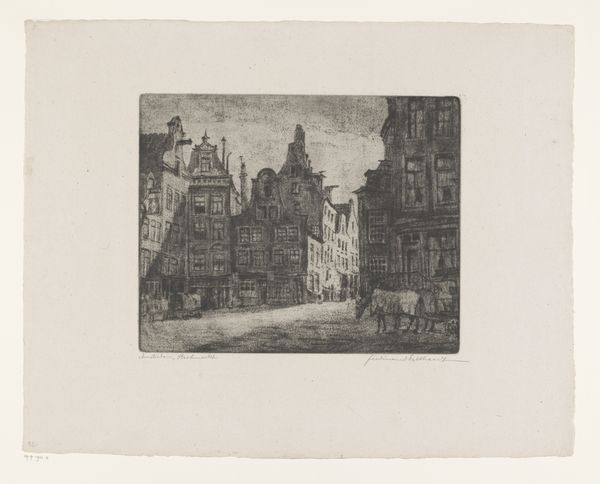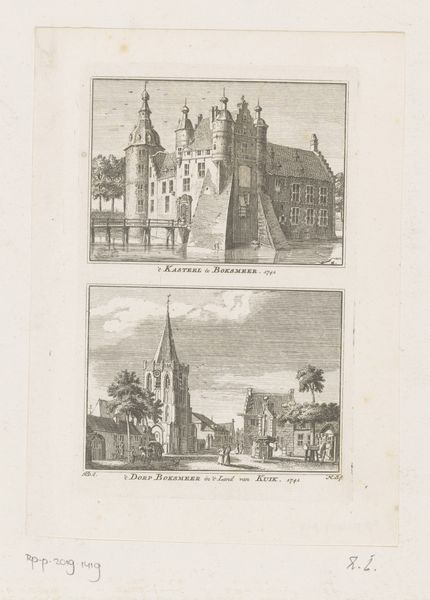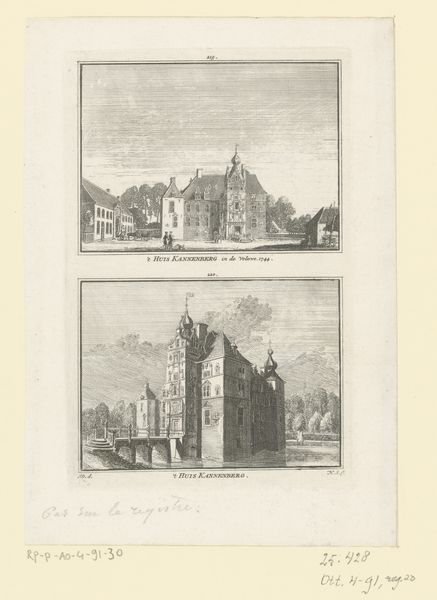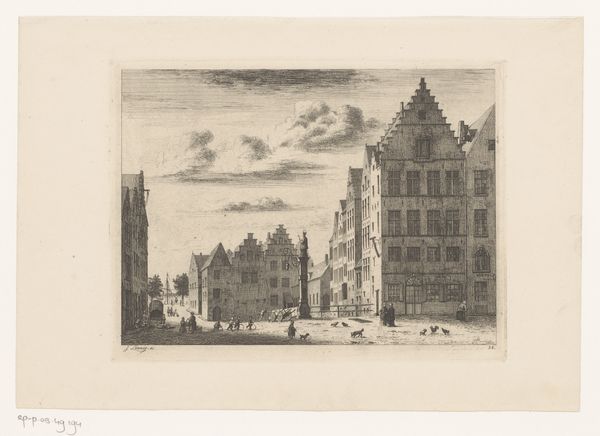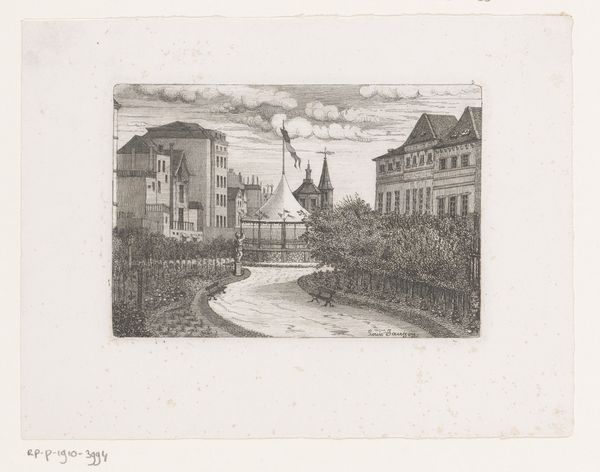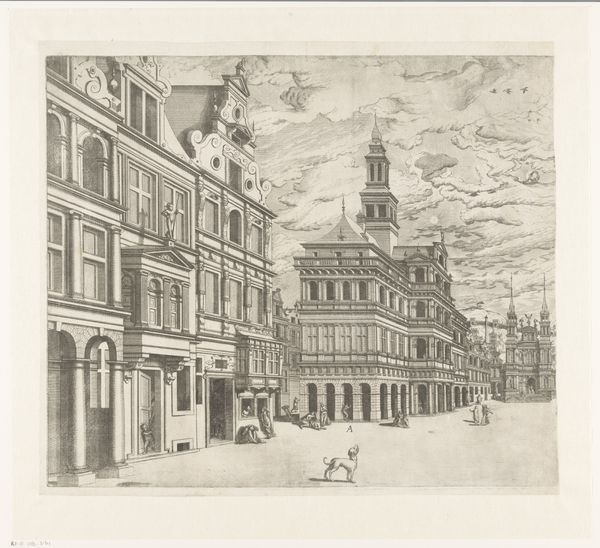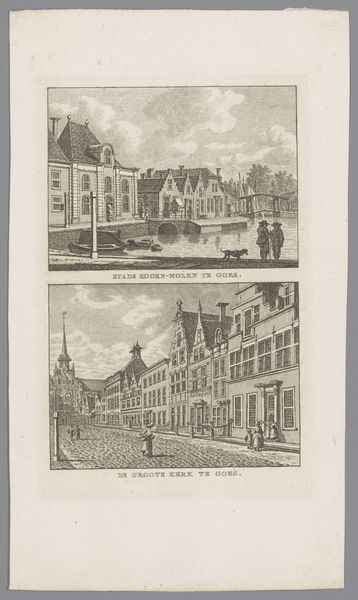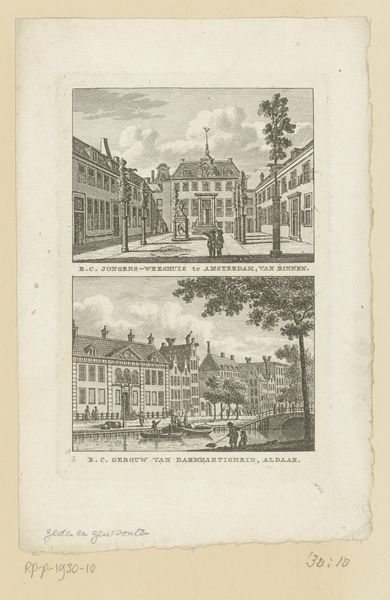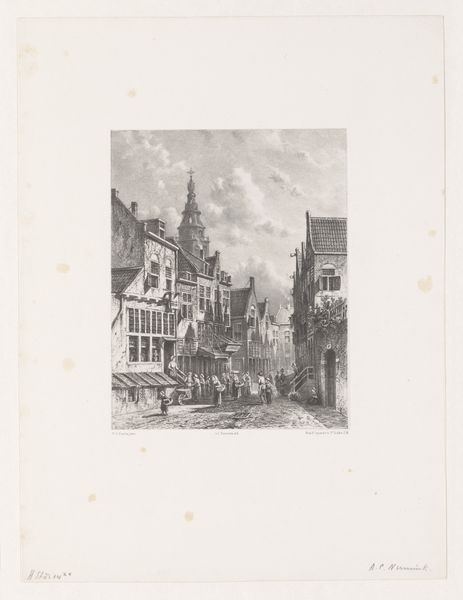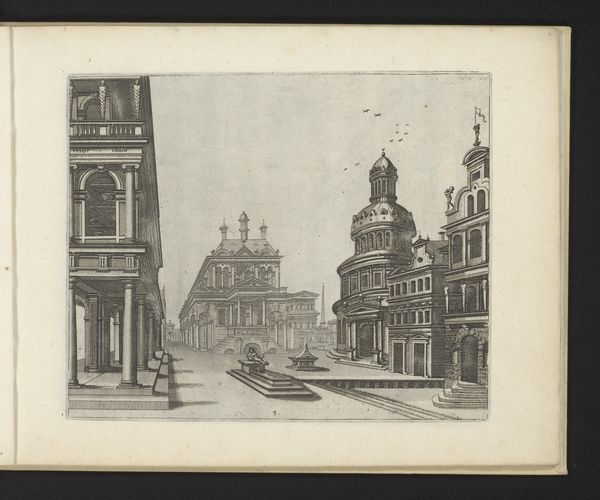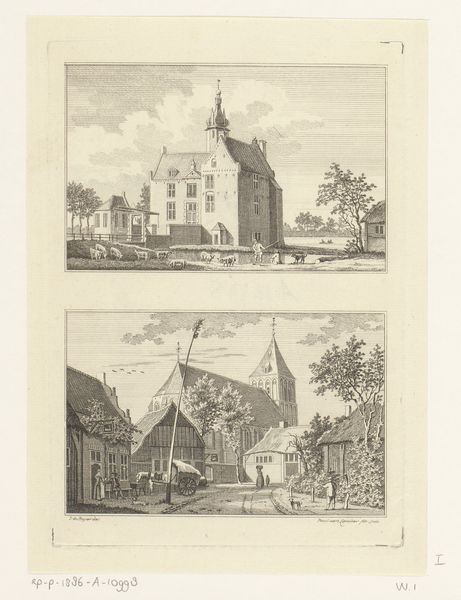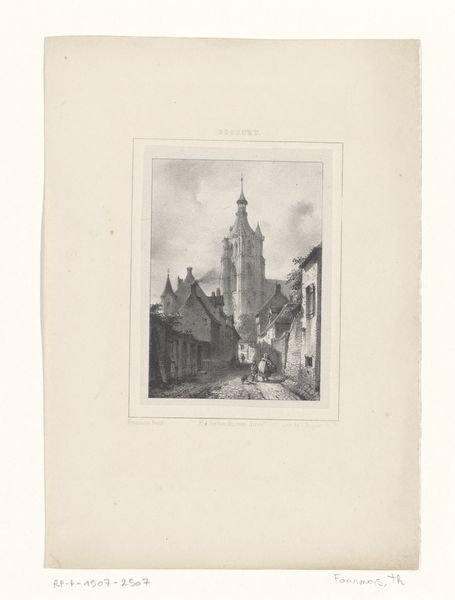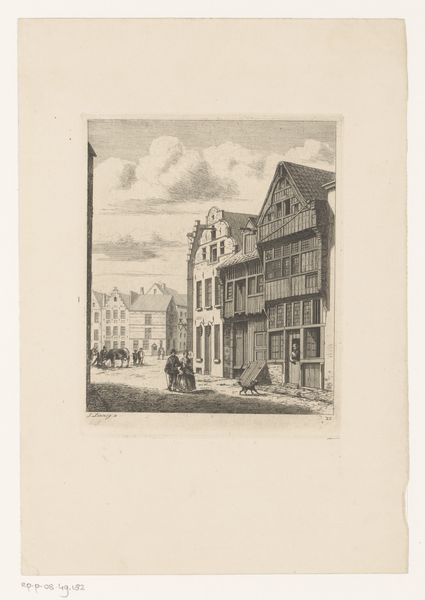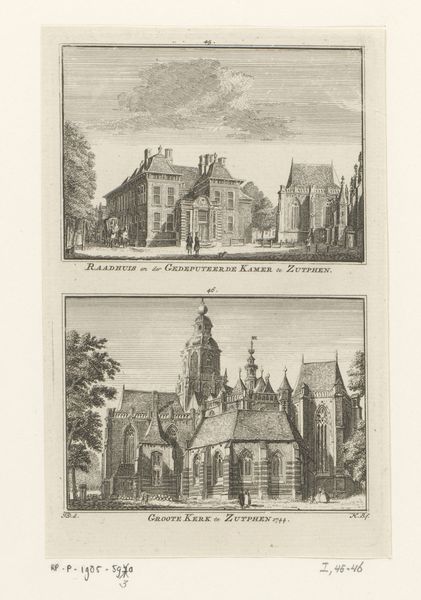
print, engraving
# print
#
landscape
#
form
#
11_renaissance
#
line
#
cityscape
#
history-painting
#
engraving
#
realism
Dimensions: height 156 mm, width 210 mm, height 153 mm, width 212 mm
Copyright: Rijks Museum: Open Domain
"Waterpoort en een stadsgracht," was made by Johannes or Lucas van Doetechum, and consists of an engraving on paper. The image is a product of early printmaking, where the artists would have painstakingly etched lines into a metal plate, which was then inked and pressed onto paper. The resulting image offers a glimpse into the urban landscape of the time, its waterways bustling with activity, suggesting a vital artery for trade and transport. The stark contrast between the lines and the paper throws the architecture and city's inhabitants into sharp relief. This technique, removed from the direct touch of painting or sculpture, allowed for the mass production of images, democratizing art and information. In the context of labor and class, the print becomes more than just a pretty picture. It represents the mechanization of art, a step away from the unique, hand-crafted object towards a more reproducible commodity. The very act of printing, with its repetitive motions and industrial undertones, mirrors the burgeoning capitalism of the era. By appreciating the materials and processes, we can truly understand its historical significance.
Comments
No comments
Be the first to comment and join the conversation on the ultimate creative platform.
